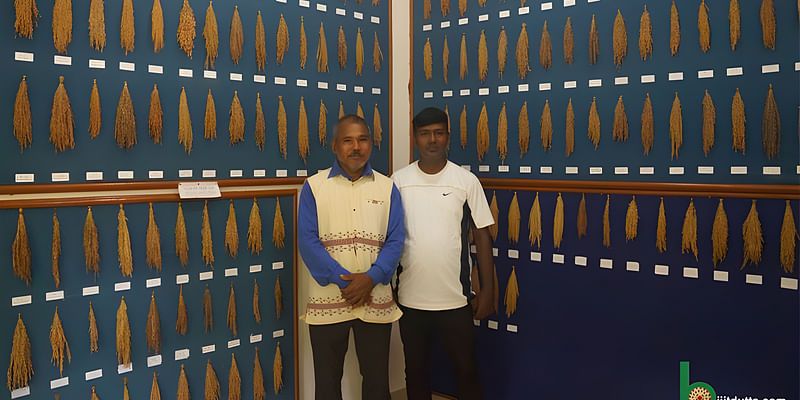
Mahan Chandra Borah, a 41-year-old farmer from Assam’s Jorhat district, has established a unique ‘Rice Library’ to preserve India’s indigenous rice varieties. Motivated by a personal quest to safeguard agricultural heritage and concerned by the diminishing knowledge of where our food originates, Borah took a decisive step to preserve over 500 indigenous rice seeds in his Annapurna Rice Library.
Borah’s farming journey was heavily influenced by his father. Memories of working alongside him in the fields, combined with Borah’s own curiosity and love for reading, gave birth to this ambitious project 15 years ago. Financial constraints following his father’s demise meant Borah had to stick to agriculture. Yet, he continued researching different rice varieties online, noticing many were on the brink of extinction.
The seeds in the Annapurna Rice Library range from the flood-tolerant Bao Dhan, a variety fitting Assam’s flood-prone regions, to the medicinal Navara variety from Kerala. Borah’s initiative ensures that these varieties, which were once staples before farming became commercialized, are kept alive for future generations.
The library also serves as a valuable resource center, offering information on each variety’s cultivation methods. Farmers can visit and take seeds to grow, ensuring a wider distribution and revival of these indigenous varieties.
However, challenges persist. Borah has solely financed the library for 15 years, utilizing profits from his farm’s produce. And while some seeds have flourished, others like Xuadhmoni dhani are disappearing, primarily due to the increasing preference for high-yield hybrids.
Experts like T Ahmed from the Regional Agricultural Research Station in Titabar, Assam, underscore the importance of such traditional varieties. Despite their lower yield, they possess unique properties like flood resistance, developed over centuries, and are more adaptable than their high-yielding counterparts.
Borah’s innovative library also acts as a practical laboratory. Seeds are planted annually, allowing them to adapt to evolving climatic conditions while retaining their genetic makeup. And while once it was common to find multiple rice varieties in one region, Borah notes that seed diversity has dwindled to just a few, reinforcing the library’s importance.
In partnering with international initiatives, like the Richmond Grows Seed Library in California, Borah’s Annapurna Seed Library has gained international recognition.
For Borah, the endeavor isn’t just about preserving seeds, but Assam’s rich cultural heritage. He believes in the adage that food diversity equals food security. By protecting these rice varieties, Borah ensures that future generations remember and benefit from India’s rich agricultural past.










![Read more about the article [Weekly funding roundup August 1-5] No major uptick in venture capital inflow](https://blog.digitalsevaa.com/wp-content/uploads/2022/04/weekly-funding-roundup-1640354161359-300x150.png)